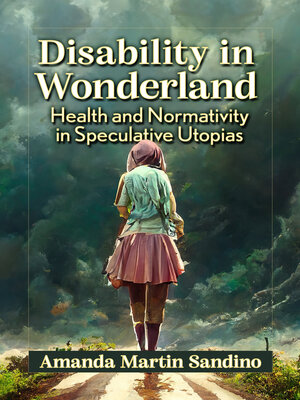Disability in Wonderland
ebook ∣ Health and Normativity in Speculative Utopias
By Amanda Martin Sandino

Sign up to save your library
With an OverDrive account, you can save your favorite libraries for at-a-glance information about availability. Find out more about OverDrive accounts.
Find this title in Libby, the library reading app by OverDrive.



Search for a digital library with this title
Title found at these libraries:
| Loading... |
Adult-directed utopian fiction has historically rejected depictions of persons with disabilities, underrepresenting a community that comprises an estimated 15% of the world's population. From the earliest stories of utopias written for and about children, however, persons with disabilities have been included in abundance, and are central to classic narratives like The Wizard of Oz and Winnie the Pooh. In a perfect world centered on children and their caretakers, these works argue, characters with a diverse range of bodies and minds must flourish. Spanning from Lewis Carroll's 1865 Alice in Wonderland to Jordan Peele's 2019 film Us, this examination of the wonderland demonstrates the role that bodily and neurological diversity plays in an ever-popular subgenre.






